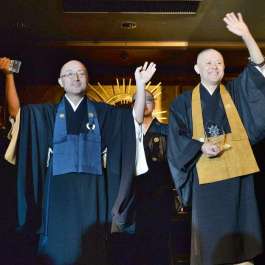The Sanskrit word karma simply means action, activity. But it is also known as seed and fruition. And here we have a problem. The English translation is “cause and effect,” popular even in scholarly books. This is inherently misleading. Cause implies that you did something and basically assign blame. And then the concepts of responsibility and punishment immediately show up. It was something you did.
While we are inherently responsible for getting out of negative karma, you are not necessarily responsible for getting into it. Life does not center around our personal dramas, no matter how intense. And everywhere in the natural world (which is where we must start) the seed of our future lies as much in what was done to us or around us as it does in our response or what we initiated. Clearly plants and insects, flying birds and crawling snakes, vigilant dogs and curious cats all follow their nature. But all are conditioned, and sometimes strongly, by their respective worlds. Harsh conditions, toxic environments, even the weather, all program reactions that seek to preserve life and avoid harm. Higher mammals, dogs and cats, can be completely changed by kindness or cruelty, deprivation or plenty. Although there is certainly variability in terms of stronger or weaker constitutions that can respond differently to adversity or change. But the impact is there.
So why, when we come to the concept of karma, is it suddenly all our fault? And the only thing that carries through, life to life, is what we did? This is completely counter to our human experience. How we are as a mature adult is a complex mix of what we were subjected to, what we were taught, what we had to overcome, what we became habituated to, how we responded, and how these lessons changed us—or not. So what is the point of even thinking about karma?
There are two incredibly important reasons.
Firstly, if you are poor, suffering from a serious illness, victimized by others, incredibly lucky and wealthy, stronger and better looking than any of your peers, what you do next is what changes your future karma. You may have been sick, attacked, or wealthy through no fault or action of your own. This is called the law of accident, not the law of karma. These are two very separate and different dictums under which we live. The law of accident exists because the wave of global karma, galactic karma, universal karma is sweeping forward second by second. And every atom, snail, and star is participating in the unimaginable weight of that wave. Pushed forward in this way, the saying “sh*t happens” is incredibly accurate. Knowing if what is happening to us now, or in this life altogether, is karma or incidental, is not possible for the average human. If you develop that differentiating skill, so much the better. But all you do know is that what you do next is definitely the seed of karma.
The second great reason is that, as spiritual people, we know that karma can be changed. Whether it is the long haul of just being a better person every day and struggling against our demons, or the sly way of the Vajrayana skill set, it can be changed. Changing it in advance, changing what our personal past (not that of the cosmos) has in store for us, is a wonderful possibility. Doing so, for example using the Vajrasattva mantra, tonglen, or other techniques, is not a cakewalk. It can, and does, cause the ripening of karma, karmic detoxification, all kinds of upheavals. But a headache from these practices may preempt a serious brain disease in the future. That is the promise given to us by our tradition, and my own experience tells me that it is no lie.
So the advice of an old man: be careful, as it is a tough world out there. Self-observe, lest you do things which hurt yourself or others. And diligently make karmic purification a part of your daily practice.
See more
Related features from BDG
The Five Deaths on the Road to Awakening
A Guide to Buddhist Hatred
The Missing Sense in Vajrayana Practice















